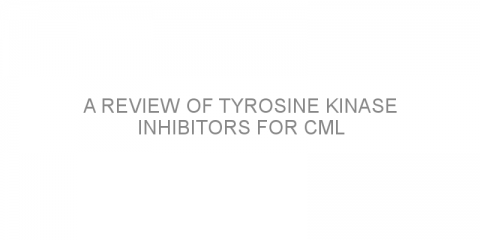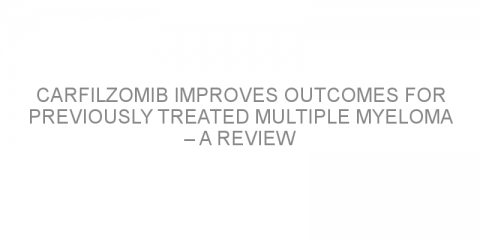In a nutshell This study aimed to compare unrelated donor umbilical cord blood transplant and unrelated hematopoietic stem cell transplant in adult and pediatric patients with acute myeloid leukemia and acute lymphoblastic leukemia. This study concluded that unrelated donor umbilical cord blood transplants could be used more often as a treatment...
Read MoreCurrent treatment status-Undergoing active treatment Posts on Medivizor
Ability to reach orgasm following prostate surgery
In a nutshell The authors aimed to determine a patient’s ability to reach orgasm after robot-assisted laparoscopic prostatectomy (RALP) based on demographics, cancer-related and surgical variables, and erectile aids. The authors concluded that men could reach orgasm an average of 3 years after RALP. Poor orgasmic ability was associated with men...
Read MoreIs changing treatment intensity after PET scan effective for patients with advanced stage Hodgkin lymphoma?
In a nutshell This study looked at changing treatment intensity after a PET scan for patients with advanced stage Hodgkin lymphoma. The authors concluded that reducing treatment intensity for patients with a negative PET scan can reduce negative side effects and improve long-term outcomes. Some background Advanced stage Hodgkin lymphoma (HL) can...
Read MoreA review of tyrosine kinase inhibitors for CML
In a nutshell This study reviewed evidence of tyrosine kinase inhibitors in the treatment of chronic myeloid leukemia (CML). Some background CML is a disease in which the bone marrow makes too many mature and immature white blood cells. Most patients are diagnosed in the chronic (early) phase. Over recent years, targeted therapy with tyrosine...
Read MoreExamining predictors of treatment response to dasatinib
In a nutshell This study examined treatment outcomes with dasatinib (Sprycel) for chronic myeloid leukemia (CML). Researchers reported a fast and strong treatment response to first-line dasatinib, particularly in older patients. The levels of a genetic mutation known as BCR-ABL1 at 3 months was found to be a predictor of treatment response. Some...
Read MoreEarly results on remission rates after discontinuation of nilotinib
In a nutshell This study examined outcomes after discontinuation of nilotinib (Tasigna) in patients with chronic myeloid leukemia (CML). Researchers reported that over half of CML patients were able to sustain a deep treatment response for at least 48 weeks after stopping nilotinib. Some background Major molecular response (MMR) is a response to...
Read MoreSafe to switch to imatinib for long-term use after initial treatment with nilotinib or dasatinib
In a nutshell This study examined whether switching between tyrosine kinase inhibitor (TKI) therapy is safe and effective for patients with chronic myeloid leukemia (CML). This study concluded that after achieving optimal response with a second-generation TKI such as dasatinib (Sprycel) or nilotinib (Tasigna), treatment can be safely switched to...
Read MoreSearching for triple negative breast cancer patients to test the effectiveness of pembrolizumab
In a nutshell This phase 3 trial aims to evaluate how effective pembrolizumab (Keytruda) is at treating triple negative breast cancer. The main outcome to be investigated is the invasive disease free survival. Other outcomes include the overall survival (time from treatment until death from any cause) and side effects. This trial is taking place...
Read MoreSearching for patients with HER2 positive metastatic breast cancer to test palbociclib in combination with standard therapy.
In a nutshell This phase 3 trial aims to evaluate the effectiveness of palbociclib (Ibrance) in combination with standard treatments for HER2 positive breast cancer. The main outcome to be investigated is progression free survival. This trial is taking place in Alabama, Illinois, Iowa, Nebraska and Oklahoma in the United States. The details...
Read MoreWhat are the cardiovascular risks of surgical castration compared to hormone therapy?
In a nutshell This study aimed to compare the risk of cardiovascular incidents (CIs, side-effects) of surgical castration versus castration achieved by hormone therapy. The study concluded that CIs were higher for surgical treatment at 1.5 years after treatment, but similar thereafter. Some background For locally advanced or metastatic...
Read MoreIncreased rituximab dose for elderly male patients with diffuse large B-cell lymphoma
In a nutshell The authors looked at increasing the dose of rituximab for elderly male patients with diffuse large B-cell lymphoma. The authors concluded that the higher dose improved patient outcomes and was just as safe as the lower dose. Some background Diffuse large B-cell lymphoma (DLBCL) is a type of non-Hodgkin lymphoma. It is...
Read MoreCarfilzomib improves outcomes for previously treated multiple myeloma – a review
In a nutshell This study summarized findings on the treatment combination known as CRd (carfilzomib [Kyprolis], lenalidomide [Revlimid], and dexamethasone [Decadron]) for previously treated multiple myeloma. The study concluded that CRd is superior in improving progression and treatment response rates compared to available alternatives. Some...
Read More











